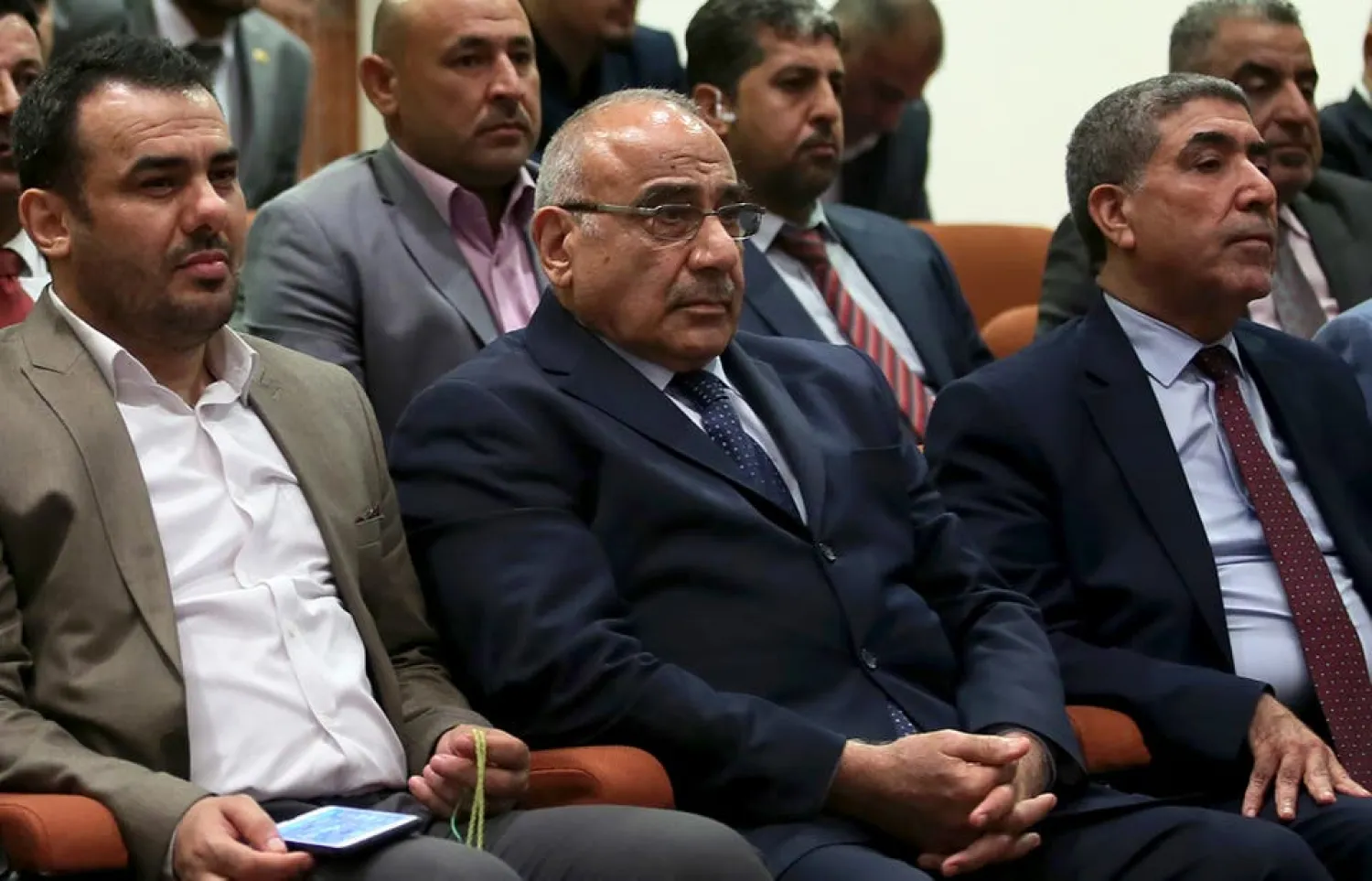Iraq's outgoing premier Adel Abdul Mahdi was seen as an independent who could unite rival factions, but anti-government protests that left hundreds dead put an early end to his term.
The 77-year-old veteran was named prime minister in late October 2018 as a consensus candidate among Iraq's divided political giants and its competing international allies.
Without a political base of his own, Abdul Mahdi was seen as the weakest prime minister in Iraq's history and observers early on predicted he would not survive the country's fractious politics for long.
But few expected he would lose his seat to furious street protests.
Demonstrations denouncing endemic graft and lack of jobs erupted on October 1 in Iraq's capital and Shiite-majority south, and a heavy-handed response by security forces and armed groups since has left more than 420 people dead and close to 20,000 wounded.
After a spree of violence this week, Abdul Mahdi said he would step down and on Sunday parliament approved his resignation.
That made him the first premier to resign since Iraq adopted a parliamentary system following the US-led ouster of Saddam Hussein in 2003.
- From dissident to deposed -
A Shiite raised in Baghdad, Abdel Mahdi was born to the son of a minister during Iraq's monarchy, which met a bloody end in 1958.
He joined the Baath party, which brought Saddam to power in the late 1970s, before switching to oppose the dictator, first as a communist and then as an Islamist from abroad.
He returned after Saddam's overthrow and became a senior figure in the Supreme Iraqi Islamic Council, a Shiite movement close to Iran.
A member of the interim authorities installed by the US military command, Abdel Mahdi briefly served as finance minister then became vice president after the country's first multi-party elections in 2005.
In the role, he was lightly wounded in 2007 when a bomb exploded inside the public works ministry.
In 2014, he was appointed oil minister under Haider al-Abadi, the man he was set to succeed as premier.
He excelled in the role, deftly negotiating with Kurds over oil before resigning after two years.
A francophone who attended university in France, he also has an excellent command of English.
"This is someone who has at various points in his career been a communist, an Islamist, an independent," said a former official who has known him for years.
"What does that tell you about what he wants? Power."
- 'Fighting off a coup' -
With a burly physique and a face framed by spectacles and a thin mustache, Abdul Mahdi was expected to use his years of experience for the tough post of premier.
He came to power based on a tenuous alliance between the parliamentary blocs of Hadi al-Ameri, a leading member of the Hashed al-Shaabi paramilitary force, and populist cleric Moqtadr Sadr.
Abdul Mahdi also had the support of the autonomous Kurdish government in the north and had hoped to normalize ties between Baghdad and regional capital Arbil.
And he had the required blessing of Iraq's main allies, neighboring Iran and the United States, who are bitter foes.
In taking the post, Abdul Mahdi admitted it was a "heavy responsibility" and said he was keeping his resignation letter "in his pocket".
He had pledged to balance ties with the US and Iran while fighting graft in a country ranked the 12th most corrupt by watchdog group Transparency International.
"He is someone who likes consensus, who is hands-off and does not like to take dramatic action," said a government source close to him.
But progress was hamstrung by divisions within the government and Abdul Mahdi "could not regain control," the source added.
In early October, demonstrators hit the streets in the largest grassroots movement in decades, venting their fury at the ruling system.
As the death toll mounted, government sources told AFP the premier became increasingly "conspiratorial" and resisted calls from the street, as well as from his one-time backer Sadr, to step down.
"He was convinced he was fighting off a coup," the government source said.
The turning point was, fatefully, three days of bloody violence this week in his birthplace of Nasiriyah, where more than 40 protesters were shot dead.
The country's top Shiite cleric urged parliament to drop support for the government and, within hours, his former government allies said they were open to a vote of no-confidence.
















